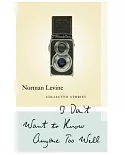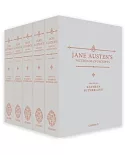From the Introduction.
IN the spring of the year 1807 Goethe began work on the second part of Wilhelm Meister. He had no very definite plot in view, but proposed to make room for a number of short stories, all
relating to the subject of renunciation, which was to be the central theme of the Wanderjahre. In the course of the summer, while he was taking the waters at Karlsbad, two or three of the
stories were written. The following spring he set about elaborating another tale of renunciation, the idea of which had occurred to him some time before. But somehow it refused to be confined
within the limits of a novelette. As he proceeded the matter grew apace, until it finally developed into the novel which was given to the world in 1809 under the title ofThe Elective
Affinities.
When that which should be a short story is expanded into a novel one can usually detect the padding and the embroidery. So it is certainly in this case. Those long descriptions of
landscape-gardening; the copious extracts from Ottilie’s diary, containing many thoughts which would hardly have entered the head of such a girl; the pages given to subordinate characters,
whose comings and goings have no very obvious connection with the story, — all these retard the narrative and tend to hide the essential idea. The strange title, too, has served to divert
attention from the real centre of gravity. Had the tale been called, say, "Ottilie’s Expiation," there would have been less room for misunderstanding and irrelevant criticism; there would have
been less concern over the moral, and more over the artistic, aspect of the story.
What then was the essential idea? Simply to describe a peculiar tragedy resulting from the invasion of the marriage relation by lawless passion. As for the title, it should be remembered that
there was just then a tendency to look for curious analogies between physical law and the operations of the human mind. Great interest was felt in suggestion, occult influence, and all that
sort of thing. Goethe himself had lately been lecturing on magnetism. He had also observed, as no one can- fail to observe, that the sexual attraction sometimes seems to act like chemical
affinity: it breaks up old unions, forms new combinations, destroys pre-existing bodies, as if it were a law that must work itself out, whatever the consequences. Such a process will now and
then defy prudence, self-respect, duty, even religion, — going its way like a blind and ruthless law of physics. But if this is to happen the recombining elements must, of course, have each its
specific character; else there is no affinity and no tragedy.
It is no part of the analogy that the pressure of sex is always and by its very nature like the attraction of atoms. Aside from the fact that character consists largely in the steady inhibition
of instinct and passion by the will, there is this momentous difference between atoms or molecules, on the one hand, and souls on the other: the character of the atom or molecule is constant,
that of the soul is highly variable. There is no room here for remarks on free will and determinism; suffice it to say that Goethe does not preach any doctrine of mechanical determinism in
human relations. The scientific analogy must not be pressed too hard. It is really not important, since after all nothing turns on it. Whatever interest the novel has it would have if all
reference to chemistry had been omitted. Goethe’s thesis, if he can be said to have one, is simply that character is fate….





















